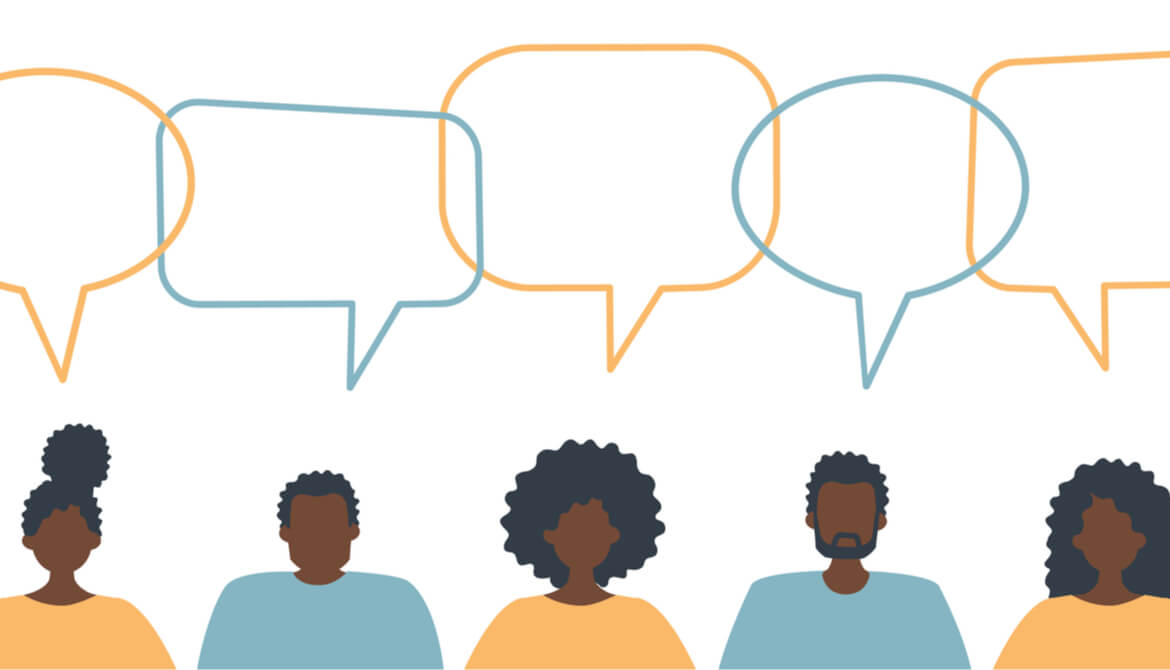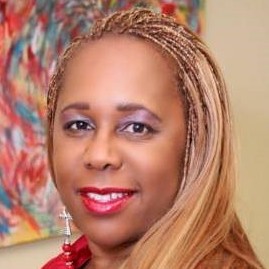6 minutes
Conversations about race are critically important to building awareness; however, how they are undertaken matters greatly.
As a member of the Black community, I have observed our constant challenge with varying aspects of widespread and individualized tragic events. These traumatic impacts are made worse by the relentless news stories, media exposure and politicization. The persistent media exposure keeps the events alive in the public mind, which brings about an increased desire to talk about what has happened.
The increased number of conversations can be seen as a good thing because it brings awareness. But, it is a double-edged sword. Awareness keeps the tragic events alive in the consciousness of the media viewer or consumer and, in turn, has the potential to create long-term and debilitating emotional, mental and spiritual consequences. Depending on the approach taken, these conversations, needed to stir up support for change, can also be frustrating and exhausting.
It is often said that talking about it will make it better. This depends, however, on a few other factors, such as: Is there therapeutic listening? Is emotional support being offered? Is the recipient simply vicariously listening to satisfy curiosity? Where the former two provide connection, the latter can leave the talker with stirred-up grief—and potentially feeling more alone than helped.
While there is still a need to continue the conversations, there are three strategies people of color can utilize to synthesize a better outcome: group talk, professional help and knowledge of Black history (because such knowledge helps alleviate the pressure in talking about the lived Black experience).
Start With Self-Care
First, allow me to make a public service announcement:
I will bypass the apparently obvious strategy of practicing self-care. If you do not engage in proper self-care—which is necessary regardless of what is going on in the world—I lovingly say, “STOP! Do not pass GO. Instead, go straight to prioritizing your own well-being.” Only when this is done may you then return to your conversation.
Let me reiterate, if you are neglecting your personal needs, you will not be effective in any type of conversation.
A few indicators of the need for self-care are:
- You no longer have a sense of humor
- Sadness or anger has become your best friend
- Frequent headaches, stomach aches or other physical concerns
- Easily irritated
- Isolating oneself
- Can no longer find joy or pleasure in anything
- Turning to unhealthy substances to deal with stress
Now that that’s settled, let’s return to the matter at hand … I will discuss the following strategies and how they can support having the necessary resiliency to keep having conversations about the Black lived experience.
Group Talk
One of the ways people attempt to bring about change is by engaging in community dialogue. This is a collective approach where several people willingly share their experiences. The racial makeup of the group is diverse, providing an opportunity to share different sides of the story and points of view.
Additionally, there is safety in numbers. This means the group approach can provide a network of peers that lends emotional support and opportunity for everyone involved to safely share their experiences, believing that those listening are invested in the conversation.
For those of you interested in facilitating such dialogue, there is a program called Living Room Conversations. At the website, there are trainings on how to facilitate tough conversations about race, privilege and change. If you have been troubled by what is going on around you, locally or nationally, you may realize you have been bottling it up inside and are no longer able to “take it.” If you don’t want to talk publicly, you might benefit from talking with a professional.
Professional Help
There are times when people are not ready for a deep public emotional dive, and that is okay. If the need to talk is there, maybe it is the right time to seek professional help from either a licensed professional counselor, a licensed social worker or a psychologist. As a licensed professional counselor, I’ve had the honor and privilege of providing therapeutic listening as part of the recovery and resiliency process for people of color.
In the aftermath of several publicly traumatic events, clients needed help unpacking buried emotions; processing feelings of disappointment, powerlessness, and disenfranchisement; and/or learning how to begin the healing process. The weighted problem of how to continue in the face of outright racial prejudice and national hatred can seem like a new burden—especially if you are unaware of the history and legacy of the “White” backlash.
Knowledge of Black History
Children born during the 60s, 70s, and early 80s would have carried the burden of being “the first.” In other words, they were the representative Black folks for White folks who would not have had much, if any, interaction with Black people. These representatives integrated schools, universities, social clubs, neighborhoods and sports. They experienced the secondary burden of setting an example of who excellent Black people were to counterattack the negative narratives being told.
These forerunners would have been groomed, educated and prepared by the older men and women and college students who were the freedom fighters and marchers of the Civil Rights movement. This first generation understood the assignment and their role, embraced it, and ran a good race. As the baton is passed to the next generation, there is a need for them to be prepared to run the next leg of the continual race.
As we begin observance and celebration of Black History Month, it’s time to remember the initial reason for the custom. In 1926, Carter G. Woodson created Negro History Week to bring awareness to the contributions of Black Americans. In 1970, at Kent State University, the first annual occurrence of Black History Month took place. As parents, grandparents, godparents, uncles, aunts and so forth, we have a duty, obligation, and responsibility to celebrate and teach—not solely during the month of February—the next generation of young Black leaders about the contributions of the forefathers.
For the next generation of young Black people who haven’t lived under the overtly repressive yoke of racism of decades past to be prepared to mentally, emotionally and spiritually run the next leg of this relay race called inclusion, they must be informed and empowered. Knowledge of Black history provides a sense of unity, identity, purpose, of belonging to community. The information received need not be limited only to the “Talented 10th” highlighted each February. Observations, celebrations and conversations about the contributions of historically known or little-known Black people should take place throughout the year.
As you continue or begin to have conversations with individuals who do not understand or those who are wanting to know how they can help, let the above-mentioned strategies guide your actions. If you find yourself nervous, uncomfortable or helpless—all normal feelings—remember, you are not alone. You stand upon the shoulders, history and contributions of the people who preceded you and the people who now stand here with you.
JaiDei Jackson is a Licensed Professional Counselor, National Certified Counselor, Prepare Enrich Facilitator and, because she wasn’t busy enough, a Certified Public Accountant. She has been extensively trained in cognitive behavioral, solution-focused and EMDR therapy. She loves to work with people struggling in their intimate relationships, including birth or blended families, and work or other life relationships by providing a space where healing can take place. She specializes in male-friendly life coaching and individual counseling that is goal-oriented, focused on solutions, collaborative, direct and actionable. Reach her on her website and at Instagram @JaiDeiJackson, Facebook: @JaiDei.Jackson or YouTube: JaiDei Jackson.






